WVC Dynamo Moscow
WVC Dinamo Moscow (Russian: ЖВК Динамо Москва) is a Russian professional women's volleyball club based in Moscow which is currently playing in the Super League. It was established in 1926 and dissolved in 1992, but was reestablished in 2004. It is the most successful team in Soviet women's volleyball history with fourteen Championship titles and the most successful team in the CEV Women's Champions League history with eleven titles.
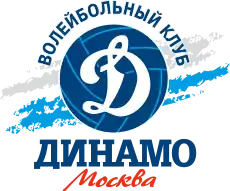 | |||
| Full name | Women's Volleyball Club Dinamo Moscow | ||
|---|---|---|---|
| Short name | Dinamo Moscow | ||
| Founded | 1926, 2004 | ||
| Ground | Dynamo Sports Palace (Capacity: 3,500) | ||
| Chairman | Evgeni Lovyrev | ||
| Manager | Konstantin Ushakov | ||
| Captain | Nataliya Goncharova | ||
| League | Women's Super League | ||
| 2021–22 | 3rd | ||
| Website | Club home page | ||
| Uniforms | |||
| |||
History
Soviet years
The club was created in 1926, when Dinamo Moscow decided to establish a women's volleyball section from its sports club. Its first participation in the USSR Championship was 1940, finishing in seventh place. The championship was not held from 1941 until 1944 due to war, but once it resumed in 1945 the club began achieving success under the coach Nikolay Nikolaevich Benderov, winning the titles in 1947, 1951, 1953, 1954 and 1955. During that period the club also won the USSR Cups of 1950, 1951 and 1953.[1]
From 1957 to 1965 the club had a new coach, Serafima Georgievna Kundirenko who took the team to winning the USSR Championships of 1960 and 1962. The introduction of the new premier club competition with clubs from Europe called European Cup (today known as CEV Champions League), provided an opportunity for the club to compete against teams from across the continent. Dynamo Moscow won the inaugural 1960–61 edition, as well as the 1962–63 and 1964–65 editions, establishing itself as one of the strongest women's volleyball clubs in Europe. In 1966, under Anatoly Sergeyevich Sarkisov the team won the 1967–68 European Cup.[1]
Givi Alexandrovich Akhvlediani became the new coach in 1969, with the goal of making Dynamo Moscow the country's leading team. Under his guidance, Dynamo Moscow brought new players (Nina Smoleyeva, Rosa Salikhova, Antonina Ryzhova, Tatyana Tretyakova, Larisa Bergen, Nina Muradyan), employed new tactics and focused on improving technical skills. That lead the club to its most successful period, winning six USSR Championships (1970, 1971, 1972, 1973, 1975, 1977) and seven European Cups (1968–69, 1969–70, 1970–71, 1971–72, 1973–74, 1974–75, 1976–77), making Dynamo Moscow the dominant force in European women's volleyball during the late 60's and 1970's.[1]
The next head coach was Mikhail Omelchenko. By the 1980s Uralochka began to emerge itself as a dominant force, and Dynamo's winning generation team of the 1970s was ageing. Omelchenko rejuvenated the squad calling new players (Lyubov Kozyreva, Nataliya Razumova) who helped the club to win the USSR Cup in 1982 and the USSR Championship in 1983. After social and political changes in the USSR, the club could no longer perform at the highest level being relegated at the conclusion of the 1988–89 season. The club kept on playing in the second division for another three seasons and decided to stop its women's volleyball activities in 1992.[1]
Russian years
After a 12-year break, the club was re-established on 12 May 2004.[1] It entered the Super League in the 2004–05 season and the team proved to be competitive right away, finishing second that year.[2] The success came shortly after the club won the league in the following two seasons (2005–06 and 2006–07) and a third time in 2008–09. Since then, they won four times the Russian Cup (2009, 2011, 2013 and 2018) in the same time they won the Super League in 2015–16, 2016–17, 2017–18, 2018–19.
The club is yet to emulate the Soviet era success in Europe, but it has reached the finals of the CEV Cup (in 2005–06) and the CEV Champions League twice (in 2006–07 and in 2008–09).
Honours
National competitions
- USSR
 USSR Championship : 14
USSR Championship : 14
- 1947, 1951, 1953, 1954, 1955, 1960, 1962, 1970, 1971, 1972, 1973, 1975, 1977, 1983
 USSR Cup: 4
USSR Cup: 4
- 1950, 1951, 1953, 1982
- Russia
- 2005–06, 2006–07, 2008–09, 2015–16, 2016–17, 2017-18, 2018–19, 2022–23
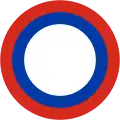 Russian Cup: 5
Russian Cup: 5
- 2009, 2011, 2013, 2018, 2022
- 2017, 2018, 2021
International competitions
Team roster
Season 2022–2023, as of June 2022.[3]
| Number | Player | Position | Height (m) | Weight (kg) | Birth date |
|---|---|---|---|---|---|
| 1 | Opposite Hitter | 1.95 | 78 | 31 July 1994 | |
| 2 | Outside Hitter | 1.88 | 69 | 10 February 2000 | |
| 3 | Setter | 1.85 | 68 | 12 February 1989 | |
| 5 | Middle Blocker | 1.94 | 68 | 7 August 1991 | |
| 7 | Setter | 1.82 | 73 | 9 September 1994 | |
| 8 | Opposite Hitter | 1.96 | 74 | 1 June 1989 | |
| 9 | Middle Blocker | 1.92 | 10 May 1993 | ||
| 10 | Libero | 1.76 | 62 | 26 March 1995 | |
| 11 | Outside Hitter | 1.85 | 74 | 21 June 1993 | |
| 12 | Outside Hitter | 1.85 | 83 | 4 April 1989 | |
| 13 | Middle Blocker | 1.90 | 76 | 7 September 1994 | |
| 14 | Middle Blocker | 1.95 | 70 | 26 February 1987 | |
| 19 | Libero | 1.75 | 59 | 16 April 1990 |
| 2021–2022 team[4] | |||||
|---|---|---|---|---|---|
| Number | Player | Position | Height (m) | Weight (kg) | Birth date |
| 1 | Opposite Hitter | 1.95 | 78 | 31 July 1994 | |
| 2 | Outside Hitter | 1.88 | 69 | 10 February 2000 | |
| 3 | Setter | 1.85 | 68 | 12 February 1989 | |
| 7 | Setter | 1.82 | 73 | 9 September 1994 | |
| 8 | Opposite Hitter | 1.96 | 74 | 1 June 1989 | |
| 9 | Middle Blocker | 1.92 | 10 May 1993 | ||
| 10 | Libero | 1.76 | 62 | 26 March 1995 | |
| 11 | Middle Blocker | 1.88 | 73 | 2 January 1990 | |
| 12 | Setter | 1.80 | 18 February 1993 | ||
| 13 | Middle Blocker | 1.90 | 76 | 7 September 1994 | |
| 14 | Middle Blocker | 1.95 | 70 | 26 February 1987 | |
| 15 | Outside Hitter | 1.85 | 69 | 1 July 1992 | |
| 16 | Outside Hitter | 1.90 | 27 June 1996 | ||
| 17 | Libero | 1.73 | 13 July 1995 | ||
| 18 | Outside Hitter | 1.90 | 73 | 13 May 1990 | |
| 19 | Outside Hitter | 1.85 | 73 | 9 October 1992 | |
| 2020–2021 team[5] | |||||
|---|---|---|---|---|---|
| Number | Player | Position | Height (m) | Weight (kg) | Birth date |
| 1 | Outside Hitter | 1.82 | 65 | 31 October 1999 | |
| 2 | Libero | 1.82 | 62 | 16 October 1991 | |
| 3 | Middle-Blocker | 1.92 | 70 | 3 July 1993 | |
| 5 | Middle Blocker | 1.93 | 77 | 21 October 1987 | |
| 6 | Outside Hitter | 1.87 | 71 | 6 September 1989 | |
| 7 | Setter | 1.82 | 73 | 9 September 1994 | |
| 8 | Opposite Hitter | 1.96 | 74 | 1 June 1989 | |
| 9 | Middle Blocker | 1.92 | 10 May 1993 | ||
| 10 | Libero | 1.76 | 62 | 26 March 1995 | |
| 11 | Opposite Hitter | 1.86 | 70 | 14 March 1998 | |
| 12 | Setter | 1.80 | 65 | 26 June 1985 | |
| 13 | Middle Blocker | 1.90 | 76 | 7 September 1994 | |
| 15 | Outside Hitter | 1.85 | 69 | 1 July 1992 | |
| 17 | Outside Hitter | 1.73 | 13 July 1995 | ||
| 18 | Outside Hitter | 1.85 | 83 | 4 April 1989 | |
| 2018–2019 team[6] | |||||
|---|---|---|---|---|---|
| Number | Player | Position | Height (m) | Weight (kg) | Birth date |
| 1 | Outside Hitter | 1.94 | 83 | 2 April 1984 | |
| 2 | Libero | 1.82 | 62 | 16 October 1991 | |
| 3 | Middle-Blocker | 1.92 | 70 | 3 July 1993 | |
| 5 | Middle-Blocker | 1.91 | 79 | 21 September 1984 | |
| 6 | Outside Hitter | 1.87 | 71 | 6 September 1989 | |
| 7 | Libero | 1.70 | 65 | 23 December 1993 | |
| 8 | Opposite Spiker | 1.96 | 74 | 1 June 1989 | |
| 9 | Opposite | 1.86 | 79 | 29 March 1990 | |
| 11 | Middle Blocker | 1.88 | 73 | 2 January 1990 | |
| 12 | Setter | 1.80 | 65 | 26 June 1985 | |
| 13 | Middle Blocker | 1.90 | 76 | 7 September 1994 | |
| 14 | Opposite | 1.90 | 70 | 31 January 1997 | |
| 15 | Outside Hitter | 1.85 | 69 | 1 July 1992 | |
| 16 | Outside Hitter | 1.88 | 70 | 25 July 1988 | |
| 18 | Setter | 1.83 | 67 | 6 August 1984 | |
| 2017–2018 team[7] | |||||
|---|---|---|---|---|---|
| Number | Player | Position | Height (m) | Weight (kg) | Birth date |
| 1 | Middle Blocker | 1.92 | 79 | 8 January 1985 | |
| 3 | Outside Hitter | 1.88 | 73 | 6 July 1992 | |
| 5 | Outside Hitter | 1.90 | 71 | 16 October 1987 | |
| 6 | Outside Hitter | 1.87 | 71 | 6 September 1989 | |
| 7 | Libero | 1.70 | 62 | 23 December 1993 | |
| 8 | Opposite Spiker | 1.96 | 74 | 1 June 1989 | |
| 9 | Setter | 1.82 | 73 | 21 August 1986 | |
| 10 | Setter | 1.75 | 64 | 2 February 1990 | |
| 11 | Middle Blocker | 1.88 | 73 | 2 January 1990 | |
| 12 | Outside Hitter | 1.84 | 76 | 30 May 1987 | |
| 13 | Middle Blocker | 1.90 | 76 | 7 September 1994 | |
| 17 | Outside Hitter | 1.88 | 68 | 13 May 1987 | |
| 18 | Middle Blocker | 1.94 | 73 | 2 May 1983 | |
| 19 | Libero | 1.75 | 59 | 16 April 1990 | |
| 2016–2017 team[8] | |||||
|---|---|---|---|---|---|
| Number | Player | Position | Height (m) | Weight (kg) | Birth date |
| 1 | Middle Blocker | 1.92 | 79 | 8 January 1985 | |
| 3 | Outside Hitter | 1.88 | 73 | 6 July 1992 | |
| 5 | Outside Hitter | 1.90 | 71 | 16 October 1987 | |
| 6 | Outside Hitter | 1.87 | 71 | 6 September 1989 | |
| 7 | Libero | 1.70 | 62 | 23 December 1993 | |
| 8 | Opposite Spiker | 1.96 | 74 | 1 June 1989 | |
| 9 | Setter | 1.82 | 73 | 21 August 1986 | |
| 10 | Setter | 1.75 | 64 | 2 February 1990 | |
| 11 | Middle Blocker | 1.88 | 73 | 2 January 1990 | |
| 12 | Outside Hitter | 1.84 | 76 | 30 May 1987 | |
| 13 | Middle Blocker | 1.90 | 76 | 7 September 1994 | |
| 17 | Outside Hitter | 1.88 | 68 | 13 May 1987 | |
| 18 | Middle Blocker | 1.94 | 73 | 2 May 1983 | |
| 19 | Libero | 1.75 | 59 | 16 April 1990 | |
Notable players
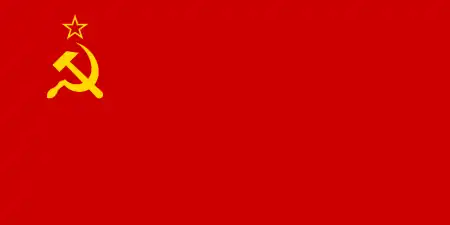 Larisa Bergen
Larisa Bergen Lyudmila Buldakova
Lyudmila Buldakova Aleksandra Chudina
Aleksandra Chudina Marita Katusheva
Marita Katusheva Irina Kirillova
Irina Kirillova Liliya Konovalova
Liliya Konovalova Lyubov Kozyreva
Lyubov Kozyreva Tatyana Kraynova
Tatyana Kraynova Nina Muradyan
Nina Muradyan Nataliya Razumova
Nataliya Razumova Antonina Ryzhova
Antonina Ryzhova Rosa Salikhova
Rosa Salikhova Lyudmila Shchetinina
Lyudmila Shchetinina Nina Smoleyeva
Nina Smoleyeva Tatyana Tretyakova
Tatyana Tretyakova Zoya Yusova
Zoya Yusova Ekaterina Gamova
Ekaterina Gamova Elena Godina
Elena Godina Nataliya Goncharova
Nataliya Goncharova Tatiana Kosheleva
Tatiana Kosheleva Svetlana Kryuchkova
Svetlana Kryuchkova Yulia Merkulova
Yulia Merkulova Maria Perepelkina
Maria Perepelkina Natalia Safronova
Natalia Safronova Irina Tebenikhina
Irina Tebenikhina Anastasiya Kodirova
Anastasiya Kodirova Tatiana Gratcheva
Tatiana Gratcheva Marina Sheshenina
Marina Sheshenina Maria Borodakova
Maria Borodakova Lesya Makhno
Lesya Makhno Anna Podkopaeva
Anna Podkopaeva Irina Fetisova
Irina Fetisova Evgeniya Startseva
Evgeniya Startseva Oksana Parkhomenko
Oksana Parkhomenko Fernanda Garay
Fernanda Garay Natalia Pereira
Natalia Pereira Nataša Osmokrović
Nataša Osmokrović Maja Poljak
Maja Poljak Sanja Popovic
Sanja Popovic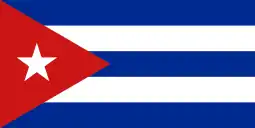 Yaima Ortiz
Yaima Ortiz Angelina Grün
Angelina Grün Carolina Costagrande
Carolina Costagrande Simona Gioli
Simona Gioli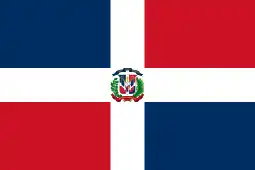 Bethania de la Cruz
Bethania de la Cruz Logan Tom
Logan Tom Maja Ognjenović
Maja Ognjenović Helena Havelkova
Helena Havelkova Elitsa Vasileva
Elitsa Vasileva
References
- "History". Volleyball club "Dinamo" (Moscow) (in Russian). Retrieved 21 December 2016.
- "2005 Russian Women's Super League". ВФВ (Volleyball Federation of Russia) (in Russian). Retrieved 21 December 2016.
- "Dynamo Moscow Players". women.volleybox.net. Retrieved 14 Jun 2022.
- "Dynamo Moscow Players". women.volleybox.net.
- "Dynamo Moscow Players". women.volleybox.net. Retrieved 7 Apr 2020.
- "Dynamo Moscow Players - Team details". Dinamo Moscow. Retrieved 6 May 2019.
- "Dynamo Moscow Players - Team details". Dinamo Moscow. Retrieved 6 May 2018.
- "Dynamo Moscow Players - Team details". Dinamo Moscow. Retrieved 15 October 2016.